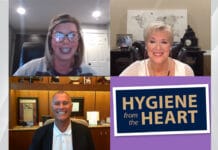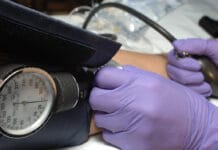As dental hygienists, we have been taught cultural competence, and respect for diversity on a multitude of levels are important core values to being a competent dental hygienist. Cultural competence means that we are aware of and understand the differences and similarities that exist between different racial and ethnic groups, and we not judgmental about the differences.
An awareness of our patients’ beliefs and cultural practices as it pertains to oral health makes us a better healthcare professional. It is never a one-size-fits-all approach for our patients. With that knowledge, we can connect better to our patients.
However, what happens when patients unintentionally make culturally insensitive comments? As hygienists, how do we react in a way that lets patients know how we feel while maintaining our dignity and professionalism?
Recently, an experience that I had with a patient prompted me to think about how cultural stereotypes affect our interactions with patients. One of my patients that I’ve been seeing for about a year now has always been very conversational and inquisitive as compared to some other patients I’ve had. As his dental hygienist, I’ve come to learn that he had some bad experiences with dentistry in the past and can get very nervous in the dental chair. Whenever he comes in, he starts making conversation about anything related to Asian culture or history in an attempt to gauge conversation. Some things he’s said truly mean no harm while other remarks unintentionally perpetuate existing stereotypes, be it positive or negative, that can hit certain sore spots for particular people. Something I’ve come to learn is that sometimes patients will use cultural stereotypes as a means of breaking the ice with you, especially during the first encounter, and that is what happened to me.
As an Asian American dental hygienist, a few patients mention things related to Asians and Asian Americans, such as food, restaurants, popular culture, movies, books, language, and travel. Several popular movies in 2018 featured Asian American actors and actresses. I’ve had a handful of questions about my opinion of those movies, or the actors and actresses. Some patients compliment or question my English, not knowing that I am American born and that English is my first language.
Most of the time, it is easy to understand the patient’s intent and understand that, truly, they don’t mean any harm or offense. However, everyone has had their own experiences with stereotypes, and that doesn’t mean that if a patient starts talking stereotypes with you, that it is to be reciprocated.
As a culturally competent dental practitioner, the golden rule is to treat others the way that you would want to be treated. That is a universal rule of thumb, regardless of profession, gender, race, or ethnicity. Everyone should practice cultural competence. Ideally, patients should treat you the way they would want to be treated − with respect, empathy, and cultural awareness. This applies to both our verbal and nonverbal communication, and whether it’s intentional or not. When something makes you feel uncomfortable, address it directly. If you let it slide one time, the problem does not just dissipate and may worsen progressively, just like periodontal disease.
A Learning Opportunity
Given the things that we hear and see on a daily basis, we have to learn how to react appropriately and quickly. One of my mottos as a professional and in life is that there is always a time and place for everything and that everything happens for a reason. When a patient may unintentionally make remarks that you may find culturally insensitive, take it as an opportunity to discuss it with the patient. If you yourself don’t stand up for what you believe in, no one else will, because how would they know?
Consider it a learning experience for yourself and your patient. Use it as an opportunity to educate your patient about your culture and your language, whether or not English is your first language. Discuss with them about what bothered you in what they said and why it bothered you. We are the best representation of our culture and our profession, and we should not have to be subject to cultural insensitivities and stereotypes, whether intentional or not.
As dental hygienists, we strive to educate our patients continually, and sometimes that education goes beyond the perimeters of just the mouth. Use your ethnic and professional identities to your advantage as a means for spreading cultural competence and knowledge. In 2019, when race and ethnicity continue to be prominent and recurrent issues in our society, learn to be the bigger person and do the right thing.
Before you leave, check out the Today’s RDH self-study CE courses. All courses are peer-reviewed and non-sponsored to focus solely on pure education. Click here now.











